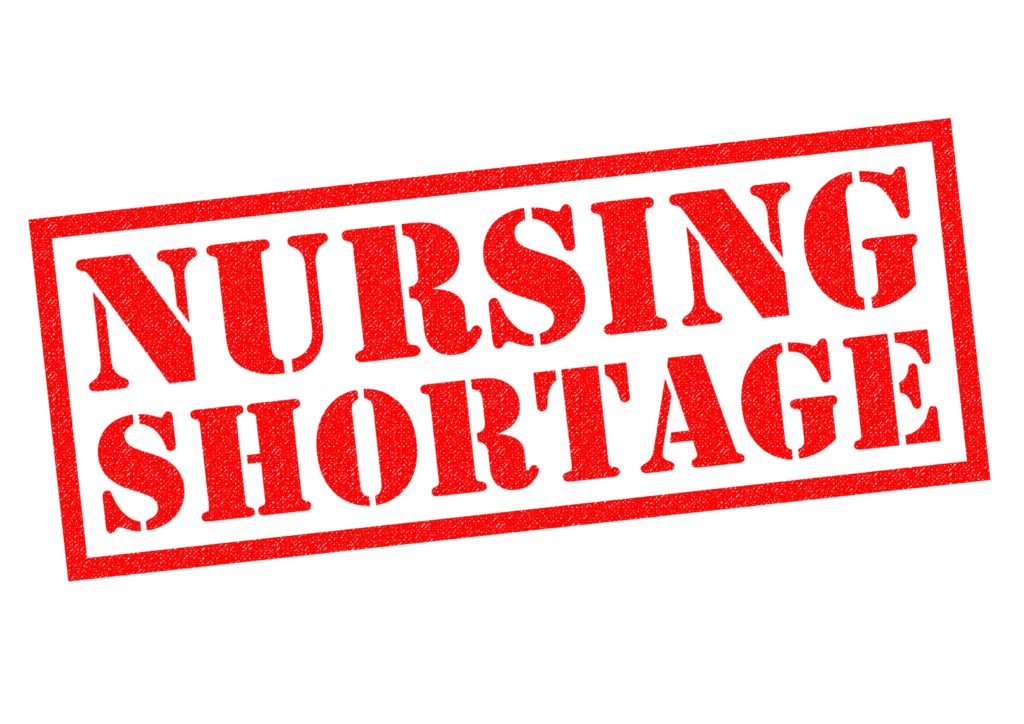Nursing shortages and declining patient safety – What can be done?
21 Oct 2021 | Anne Marie Fogarty
| Share with

Even before the entire country was plunged into a global pandemic, the NHS in this country was dangerously close to reaching crisis point.
With budget cuts, talks of privatization, staff shortages, a lack of funding, poor pay, poor working conditions, unsafe working environments, and very little empathy or compassion from their peers, nurses were certainly not to be envied.
As a result of everything stated above, and a whole lot more besides, the NHS is currently experiencing a nursing shortage. We say ‘currently’ but the truth of the matter is that this has been the case for years well before the COVID-19 pandemic.
This shortage of nurses in the UK isn’t just detrimental to nurses, it is also putting the health and safety of patients at risk too, which is why something must be done.
Recently, the Royal College of Nursing (RCN) has put the Health Secretary under pressure as they have demanded the Health Secretary be held legally accountable for these nursing shortages.
Could a new law fix these shortages?
Recently, a new bill in the UK underwent a second reading in the Houses of Parliament. The Health and Care Bill puts forward a number of reforms to the health and care sectors in the UK. One of which was to address the shortage of nurses the NHS is currently experiencing.
MPs were briefed in advance by the RCN to outline several important changes that needed to be made to address the shortage of nurses, and to ensure that the NHS saw a steady supply of nurses in the future. Furthermore, MPs were warned that the current legislation was not fit for purpose.
Shadow Health Secretary, Jonathan Ashworth, backed the RCN and their demands and emphasised how important fair pay and safe staffing legislation is for nursing staff here in the UK.
Should the Government be held accountable?
In a recently published report by the RCN, it was revealed that since 2016 when concerns over a shortage of nurses were first raised, the government has ignored more than 21 warnings that the NHS was dangerously understaffed when it came to nurses.
A shortage of nurses is catastrophic for the healthcare industry, and other related sectors and the sombre truth of the matter is that, if these issues are not addressed and rectified, it will result in numerous lives being lost, and patients not getting the care or treatment they should be getting, all of which could be prevented.
The NHS is currently working its way through a backlog of patients, all requiring various treatments, surgeries, medications, and appointments and the fact is that without enough nurses, the NHS could very well become overwhelmed in a much different way to how politicians were concerned about in 2020.
There is currently a backlog of more than 13 million patients needing NHS attention and treatment, the public cannot be placed at risk any longer, meaning that we need nurses now, rather than later.
Even before the pandemic, there were more than 50,000 nursing vacancies in the UK, yet as we come to the end of the pandemic, hopefully once and for all, the true scale of the shortages of nursing staff is yet to be determined.
The government must act now and rectify these shortages in order to make a real difference.
Which changes must be made?
According to the RCN, there are a number of changes that need to be made to the Health and Care Bill to address the shortage of nurses in the UK.
Some of the most important changes include:
- The appointment of a senior nurse on the board of new regional health and social care organisations (known as Integrated Care Systems)
- The publication every 5, 10, and 20 years via the government, of the workforce required to deliver the health and social care services based upon the population of the UK at these specific points in time
- Ensuring that the voices of recognised experts such as Royal Colleges are a part of the regulation of the profession
- Guaranteeing that the authorising of services is carried out in partnership with local communities
The bill is due to go through the legislative process over the coming weeks, where MPS will scrutinise it, line by line.
The RCN’s objective is for the bill to be substantially amended in order to address the shortage of nurses here in the UK and to ensure better working environments for nurses in the future.
We continue supporting our NHS with flexible workforce solutions across the UK. Investment into more graduates, attraction to the career, retention policies that work, and working collaboratively with staffing solutions organisations can have a positive impact on not only recruiting nurses but retaining them in the profession.
Leave a Comment
You must be logged in to post a comment.

21 Oct 2021 | Leave a comment
Share with socials